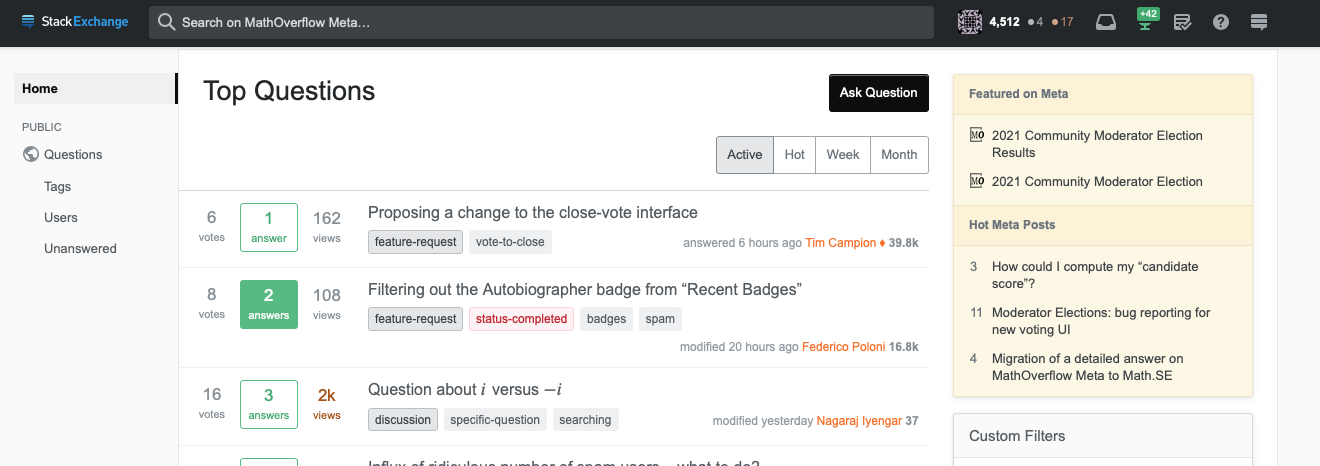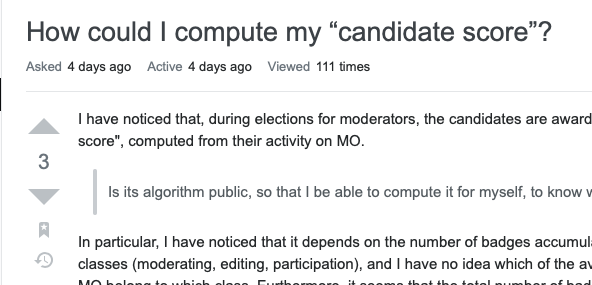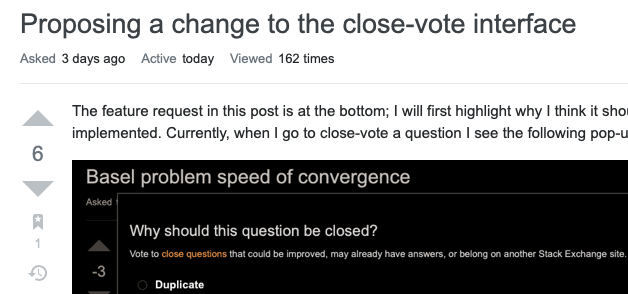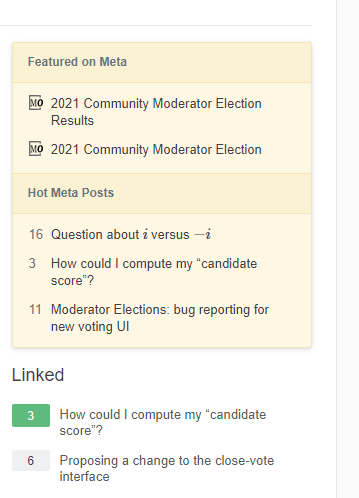I'm curious about the exact mechanisms behind the 'hot meta posts' blurb on the right hand side of the main/meta page.
I have been monitoring it for the past few days to see if my recent question would make it, but it never appeared (to my knowledge, and I visit the site a somewhat embarassing amount).
Initially when the upvote count was higher than other older questions on meta I thought that perhaps the low view count was contributing, but the question that just popped up in the queue now currently has fewer views and fewer upvotes, and is an older question.
If the amount of upvotes and views and time to get them have no direct bearing on what becomes a hot meta question, what does? Is it not showing for me because it is my question?
I did note that the moderator response to my question was essentially 'we have bigger fish to fry and like things the way they are', which makes me wonder if it was blocked from being hot by the moderation team. If this is the case I have no outright objections, although I think some transparency would be nice. (I also think that hot questions can't be edited like that by moderators based on past drama, but I am not sure.)
Any pointers are appreciated.




